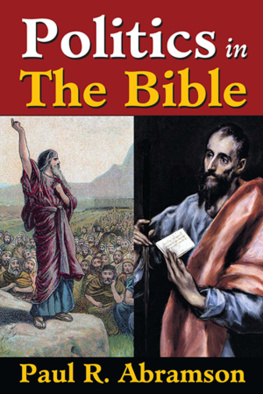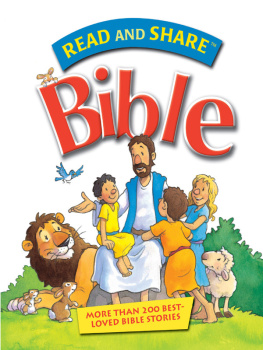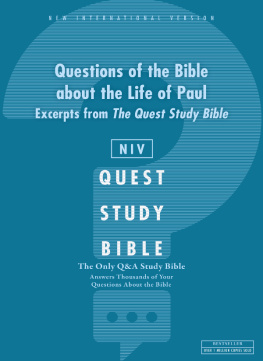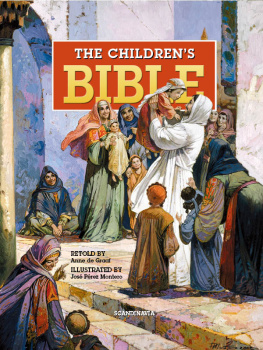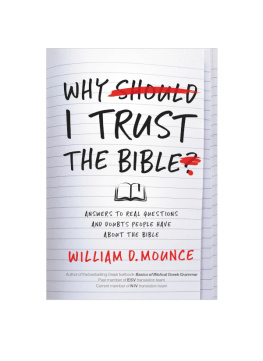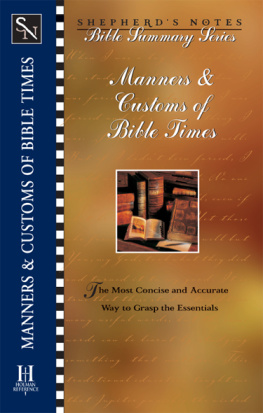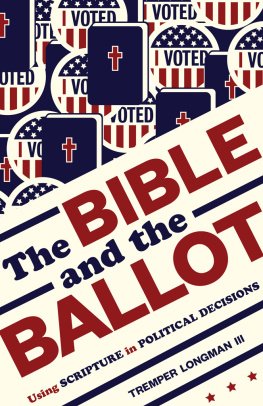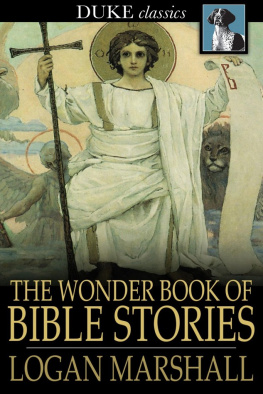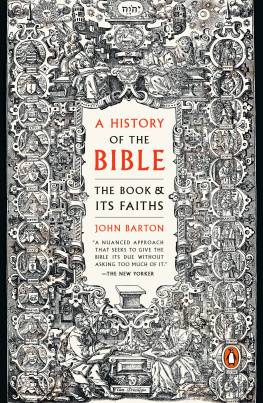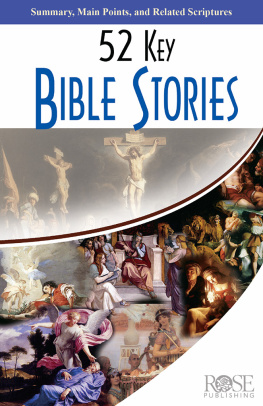First published 2012 by Transaction Publishers
Published 2017 by Routledge 2 Park Square,
Milton Park, Abingdon, Oxon OX14 4RN
711 Third Avenue, New York, NY 10017, USA
Routledge is an imprint of the Taylor & Francis Group, an informa business
Copyright 2012 by Taylor & Francis.
All rights reserved. No part of this book may be reprinted or reproduced or utilised in any form or by any electronic, mechanical, or other means, now known or hereafter invented, including photocopying and recording, or in any information storage or retrieval system, without permission in writing from the publishers.
Notice:
Product or corporate names may be trademarks or registered trademarks, and are used only for identification and explanation without intent to infringe.
Library of Congress Catalog Number: 2011034114
Library of Congress Cataloging-in-Publication Data
Abramson, Paul R.
Politics in the Bible / Paul R. Abramson.
p. cm.
Includes bibliographical references and index.
ISBN 978-1-4128-4310-2 (cloth)
1. Politics in the Bible. I. Title.
BS680.P45A27 2012
220.832dc23
2011034114
ISBN 13: 978-1-4128-4310-2 (hbk)
Three scholars read the entire manuscript, and I am grateful for their criticism: my colleagues William B. Allen and Corwin D. Smidt at Michigan State University, and the leader of my weekly Bible study group Stephen Rayburn. Robert Alter of the University of California at Berkeley briefly looked at an early version of this book, and his insightful suggestions helped shape my approach.
Ira Sharkansky at The Hebrew University of Jerusalem read large portions of the manuscript. Several other scholars read portions of the manuscript, including my colleague Michael Colaresi. My colleague Ani Sarkissian helped with my discussions of Islam. In addition, Bonnie Honig at Northwestern University made numerous suggestions for my chapter on Ruth, and Scott Gates of the Peace Research Institute in Oslo (PRIO) made helpful suggestions for my chapter on Isaiah. Moshe Koppel of Bar Ilan University reminded me about the contentious history of Hebron. Abraham Diskin of The Hebrew University of Jerusalem provided specific information about the naming of the Jewish state as well as a recent study on Seder participation in Israel conducted by the Central Bureau of Statistics.
I also want to thank Steven J. Brams at New York University and Kenneth A. Shepsle of Harvard University for their encouragement.
My son, Lee J. Abramson, also provided comments. And, as with all my previous books, I thank my wife Janet for her assistance in copyediting.
At Transaction Publishers, I want to thank Jennifer Nippons for her enthusiastic support for my project, and to Irving Louis Horowitz for his generous praise. Larry Mintz did an outstanding job of copy-editing the manuscript, and Andrew McIntosh did an excellent job shepherding my book through its production.
Paul R. Abramson
The Bible is fundamental to Western culture, and political philosophers from Hobbes, Locke, Montesquieu, and Rousseau, to modern political theorists such as George H. Sabine (1961), Leo Strauss (1959), and Sheldon S. Wolin (2004) draw upon biblical examples. American political leaders, such as Thomas Paine, Abraham Lincoln, and William Jennings Bryan, drew heavily upon the Bible. George Shulman (2008) demonstrates the impact of the Hebrew prophets, especially Jeremiah, upon Henry David Thoreau, Martin Luther King Jr., James Baldwin, and Toni Morrison. Most contemporary politicians display less familiarity with the Scriptures, but many proudly proclaim themselves to be born-again Christians.
Many current studies of the Bible focus on textual analysis (see, for example, Richard Elliott Friedman, 1989, 2003). Friedman argues that the Hebrew Bible comes from four main sources, an E source because God is referred to as El or Elohim, a J source that refers to God by his proper name, Yahweh, and a D source responsible for Deuteronomy. The largest source of the Pentateuch, he argues, is an Aaronid priest, the P source. These sources were combined by a Redactor, sometimes writing material that can best be labeled R.1
But many political scientists, as well as other scholars, have studied the Bible to gain insights about political conflict and political leadership. For example, Steven J. Brams (2003, 2011) applies game theory to study the Hebrew Bible, Aaron Wildaysky analyzes the political leadership of Joseph (Wildavsky, 1993) and Moses (Wildavsky, 1984), and Michael Walzer (1985) studies the Exodus from Egypt as a revolution, brilliantly demonstrating its relevance to other revolutions, especially the English Civil War (164251). Bonnie Honig analyzes Ruth as an example of political assimilation (1997, 2001). There are many studies of the kings of Judah and Israel, and David has been studied more extensively than any other biblical monarch. Paul Borgman (2008), Israel Finkelstein and Neil Asher Silberman (2006), Steven L. McKenzie (2000), Robert Pinsky (2005), and Ira Sharkansky (1996) study David, although their books do not approach the comic brilliance of Joseph Hellers novel, God Knows (1984). The Israelite monarchy reached its heights under King Solomon, and Frederic Thieberger (1947) studies the organization and leadership style of his monarchy. There have also been analyses of the political conflicts described in the Book of Esther (see, for example, Yoram Hazony, 1995).
A great deal has been learned recently on the canonization of the New Testament.2 But through the time of its canonization, Christians never held political power, so they are largely restricted to the views of Jesus, his apostles, and his disciples about how to respond to hostile political authority. I will focus mainly upon Jesuss major confrontation with political authority, his trial and execution (Haim Hermann Cohn, 1971; Gerard S. Sloyan, 2006), and on Pauls writings.3 Because there is a growing interest in the end times, I will discuss some of the the first two epistles of John and Revelation.
Readers will observe that I refer to the Old Testament as the Hebrew Bible, which includes thirty-nine books. For Jews, the technical name for these writings is the Tanakh, an acronym for the Torah, meaning the Law (The Five Books of Moses), Neviim (The Prophets), and Kethuvim (Writings). Protestants accept these same thirty-nine books but organize them as The Pentateuch (which has the same contents as the Torah), The Historical Books, The Poetical and Wisdom Books, and the Prophetic Books. For the first seven books, both Bibles order the books in the same way, but beginning with Ruth, the order diverges. When I want to emphasize the Protestant ordering, I use the term the Christian Scriptures. Jews do not accept the books after 2 Chronicles in the Hebrew Bible or after Malachi in the Christian Scriptures. They therefore reject the books between Matthew and Revelation. Most Jews refer to them as the New Testament. Jews and Protestants do not view the

